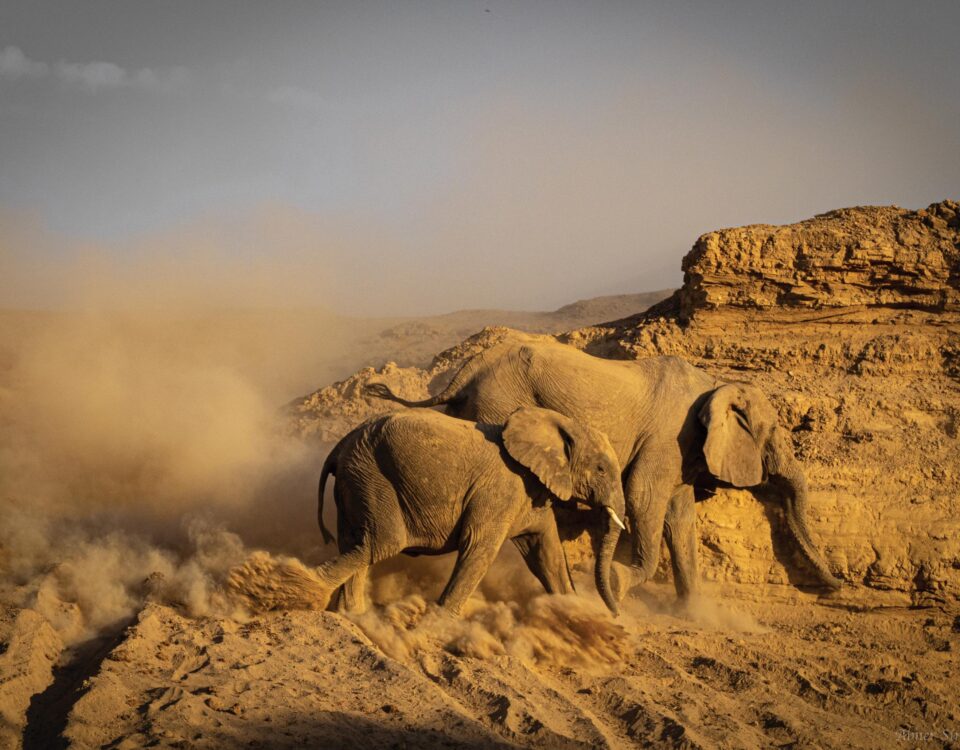Tax policy under the spotlight
August 12, 2012Windhoek’s new world-class Hilton
August 12, 2012Text and photographs Edward Jenkins
Karakulia Weavers in Swakopmund – A local entrepreneur continues a thirty-year tradition of excellence, giving a popular Swakopmund tourist stop a new lease on life.
The karakul sheep has shared a long history with humans, having been bred continuously in central Asia since around 1400 BC. Renowned for thriving under harsh desert conditions, an initial 12 animals were imported to Namibia (then South West Africa) by German colonists in 1907, and immediately took to their new environment.
 Considered to be the strongest of the ‘carpet wools’, karakul wool has been used in many of the finest carpets and Persian rugs, which last for generations. The agricultural co-operative AGRA reports that about 200 000 kilograms of karakul wool is produced annually in Namibia, with 95% being exported and sold in South Africa. The lightest shades are kept here and sold to a number of quality manufacturers, who, over the past 60 years, have developed a distinctively Namibian product.
Considered to be the strongest of the ‘carpet wools’, karakul wool has been used in many of the finest carpets and Persian rugs, which last for generations. The agricultural co-operative AGRA reports that about 200 000 kilograms of karakul wool is produced annually in Namibia, with 95% being exported and sold in South Africa. The lightest shades are kept here and sold to a number of quality manufacturers, who, over the past 60 years, have developed a distinctively Namibian product.
For more than 30 years, Karakulia Weavers in Swakopmund has drawn tourists from around the world to tour their workshop and to purchase the custom hand-woven, hand-dyed carpets, rugs and wall hangings they create exclusively from karakul sheep wool. Beautiful Namibian designs hang next to custom-made products, which may advertise a business, or even turn a photograph of a Namibian vacation into a timeless work of the weaver’s art.
For 20 of those 30 years, these visitors have been welcomed by Moses Helao with his broad smile, and in recent months, he has much more to smile about.
“There are lots of obstacles when getting a business loan. The best way is to start it, finish it, and never to give up!”
In 1991, Moses left his parents and six siblings in northern Namibia and travelled to Swakopmund, seeking employment. He worked for a time as a domestic cleaner before being hired at Karakulia Weavers to sweep floors.
Jenny Carvill started the business in 1979. She recalls that Moses’s work ethic, intelligence and willingness to learn set him apart from other employees. “It became clear right away that he had the potential to become a pattern-maker,” she said. And from that point, there was no stopping him.
Moses welcomed additional responsibilities, and proved he was willing to go beyond basic job requirements to better himself. As he moved from pattern-making to design, he attended art school at night for a year. Moving into the supervisory ranks, he also studied German and took computer classes, again in his own time.
Over his two decades with the company, Moses has at one time supervised each aspect of manufacturing, including the carding, spinning, dyeing and weaving processes. He was also a sales assistant and assistant manager, before becoming general manager about four years ago.
Jenny sold the business to South African investors in 2006, after Moses declined the opportunity to purchase it. “I wasn’t ready then,” he explained. The business continued to thrive, but the economic downturn, with decreased tourism, began to have an impact. From a high of about 50 employees, only 26 remained by the beginning of 2010, and the owners approached Moses as a potential buyer. After extended negotiations, a bargain was struck, and his dream of owning the business became a reality.
Moses hopes to match Karakulia Weaver’s worldwide reputation for quality and excellent customer service, while adding some new, inexpensive items to his product line
“When I started the loan process, I had never seen a business plan before,” he recalls. With the bank’s assistance, he was able to demonstrate a viable plan, and in March of this year, the loan was approved. His advice to young entrepreneurs? “There are lots of obstacles when getting a business loan. The best way is to start it, finish it and never to give up!”
Today, the business employs seven staff, including Anna Hitu Amunyela, a former Karakulia Weavers employee who returned from Walvis Bay just weeks ago to work for Moses. Anna says the employees are happy that Moses was able to buy the business, and that they will all work hard to make it a success.
Moses (41) says he bases his leadership style on the way he interacts with his wife, Ndamona, sons Matthew (15) and Thomas (9), and his daughter Veronica (13). He believes that, as in a close-knit family, trust and loyalty between the owner and employees are critical to the success of a business. “You need to respect them and be honest,” he says. “And treat them the way you like to be treated… don’t go into business just to be a boss,” he advises. “Be proud of your business, and of your product.”
He hopes to match Karakulia Weavers’ worldwide reputation for quality and excellent customer service, while adding new, inexpensive items to his product line. Some of the older designs will be modified to make more use of natural colours. “The world is changing, and people today have different tastes,” he explained. “It’s important to listen to the customer. They are the king and queen of the company.
This article appeared in the Sept’11 edition of FLAMINGO Magazine.

